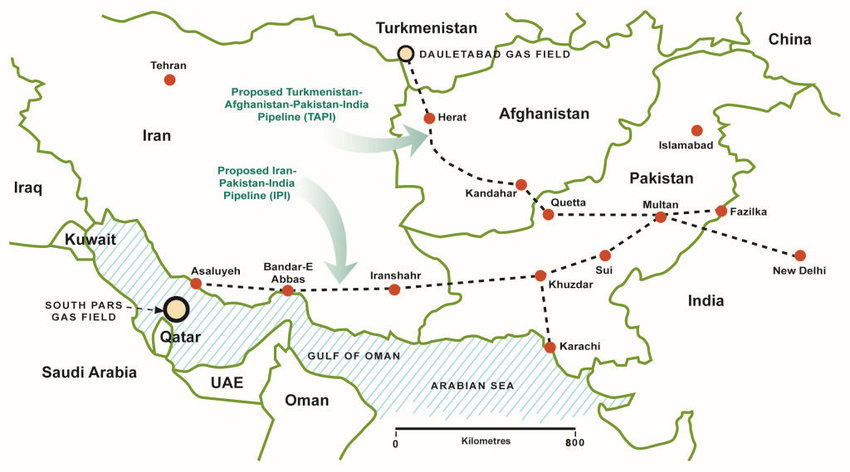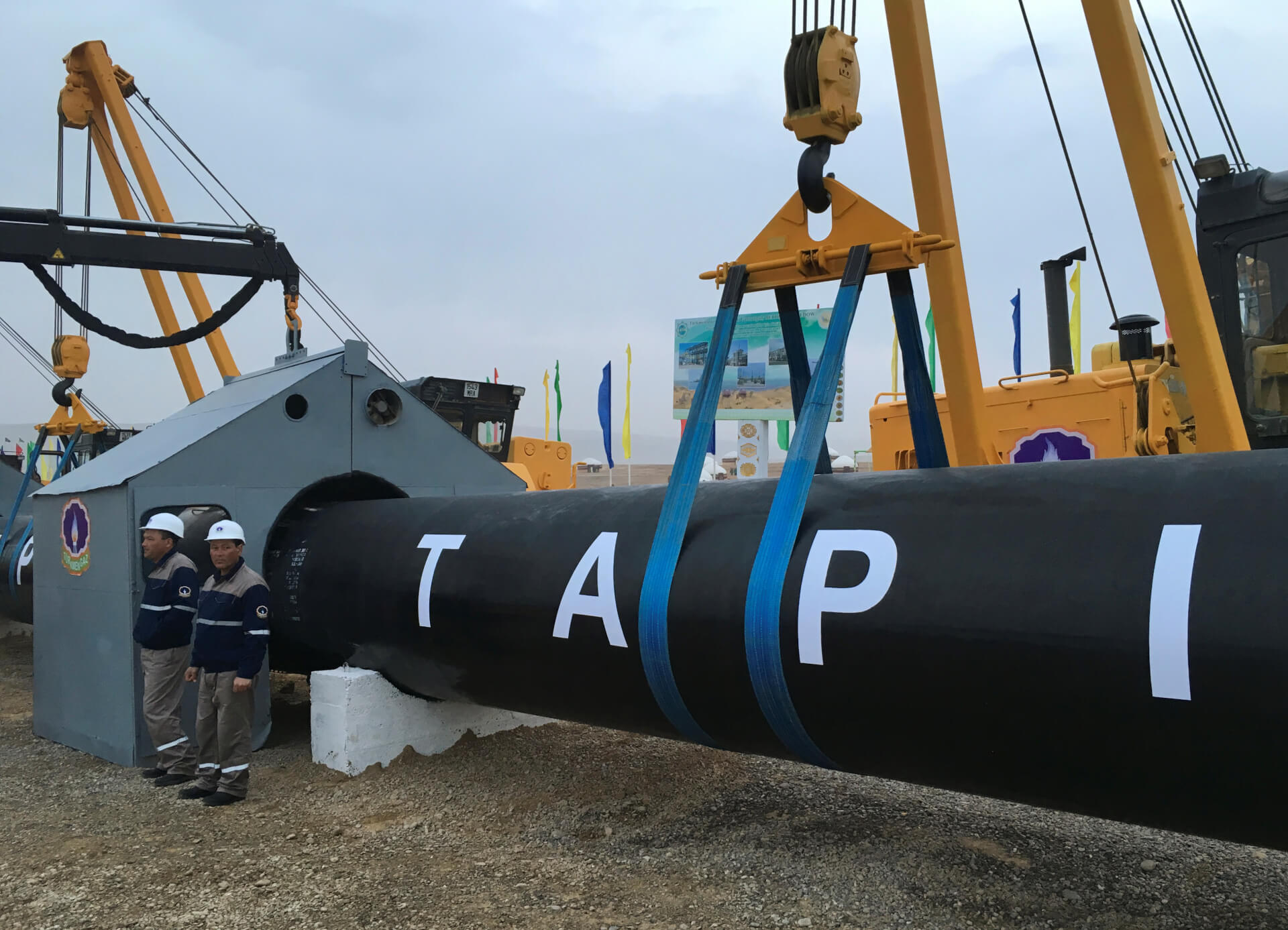Pakistan’s ambassador to Afghanistan, Mansour Ahmad Khan, said the countries involved in the Turkmenistan-Afghanistan-Pakistan-India (TAPI) natural gas pipeline are ready to proceed with the project, as the security situation in Afghanistan has improved.
He noted, however, that the project, also called the Trans-Afghanistan Pipeline, is facing issues with “the lack of banking transactions.” While the Pakistani official did not mention what the obstacles were, this was a likely reference to the Western-imposed sanctions on Afghanistan since the Taliban takeover in August, which has complicated efforts to send money to the country. Moreover, international banks have also pulled funding from the project over concerns of misuse by the Taliban.
In this regard, Khan called for a resolution of all issues surrounding the project, saying it is critical to linking Central and South Asia.
Had a productive meeting with Afghan business and trade community today at Pakistan Embassy and discussed difficulties in trade, transit and business exchanges with Pakistan & need for addressing these issues on priority @ForeignOfficePk @PakinAfg pic.twitter.com/VTN8Hcoz4M
— Mansoor Ahmad Khan (@ambmansoorkhan) May 30, 2022
In contrast, Taliban deputy spokesperson Inamullah Samangani said work on the TAPI pipeline has resumed and hasn’t been halted by the group.
Deputy Minister of Economy Abdul Latif Nazari said that the success of the TAPI project is critical for economic recovery and poverty alleviation. Like Samangani, he said, “There isn’t any specific political obstacle for the TAPI project. Nevertheless, he acknowledged certain “technical problems” amongt the quartet, which he claimed would be resolved soon. However, these issues have remained unresolved for months now. Back in January, Taliban spokesperson Bilal Karimi, too, said the group is working to resolve “technical and logistical problems.”
The $10 billion pipeline is a partially-constructed 1,800 kilometre-long natural gas pipeline that is being developed by the Galkynysh-TAPI Pipeline Company Limited in collaboration with the Asian Development Bank. If completed, the TAPI pipeline would create 12,000 job opportunities in Afghanistan.
While the agreement between the four countries was signed in 2008, the project was first launched in December 2015. According to the agreed-upon framework, the Gas Authority of India, the Afghan Gas Enterprise, and Pakistan’s Interstate Gas systems will each have a 5% stake in the project. Meanwhile, Turkmenistan’s Tukmengaz will hold an 85% stake in the project.
Today, I hosted Ambassadors of Afghanistan’s neighboring/regional Islamic countries including Iran, Turkey, Uzbekistan, Turkmenistan and Ambassador of OIC for promoting peace, stability, progress in Afghanistan & regional connectivity @ForeignOfficePk @PakinAfg pic.twitter.com/GN85ArZThY
— Mansoor Ahmad Khan (@ambmansoorkhan) May 25, 2022
It aims to connect the Galkynysh Gas Field in Turkmenistan to Afghanistan, Pakistan, and India and provide the three countries with 33 billion cubic metres of gas per year. Turkmenistan has the world’s sixth-largest reserves of natural gas, with around 19.5 trillion cubic metres. Currently, the biggest importer of Turkmen natural gas is China, which brings in 35 billion cubic metres each year.
The work on the Afghan section of the pipeline commenced in February 2018. However, since the Taliban took over in August 2018, the Asian Development Bank has halted all of its due diligence and processing activities until the United Nations recognises the Taliban regime.
Meanwhile, construction in Pakistan was set to begin in December 2018. However, worsening tensions between India and Pakistan have halted any progress. India is concerned that if its industries grow dependent on the natural gas provided by the project, Pakistan could exploit this and cut off supplies during periods of heightened tensions. Moreover, although no country in the world has thus far officially recognised the Taliban government, India appears the least likely to do so out among the TAPI partners.

To overcome the political, financial, and technical challenges faced by the TAPI project, Indian President Ram Nath Kovind visit Ashgabat in April to meet with Turkmen President Sedar Berdimuhamedov. The pair highlighted the importance of ensuring the security of the TAPI pipeline, specifically in light of the Taliban’s rise to power in Afghanistan. The issue was also highlighted by PM Modi during the first India-Central Asia Summit in January 2022.
Similarly, Turkmen Vice-Premier and Minister of Foreign Affairs R. Meredov met with the interim Afghan Prime Minister Mohammad Hasan Akhund last October, wherein they vowed to give the pipeline “special attention.”

